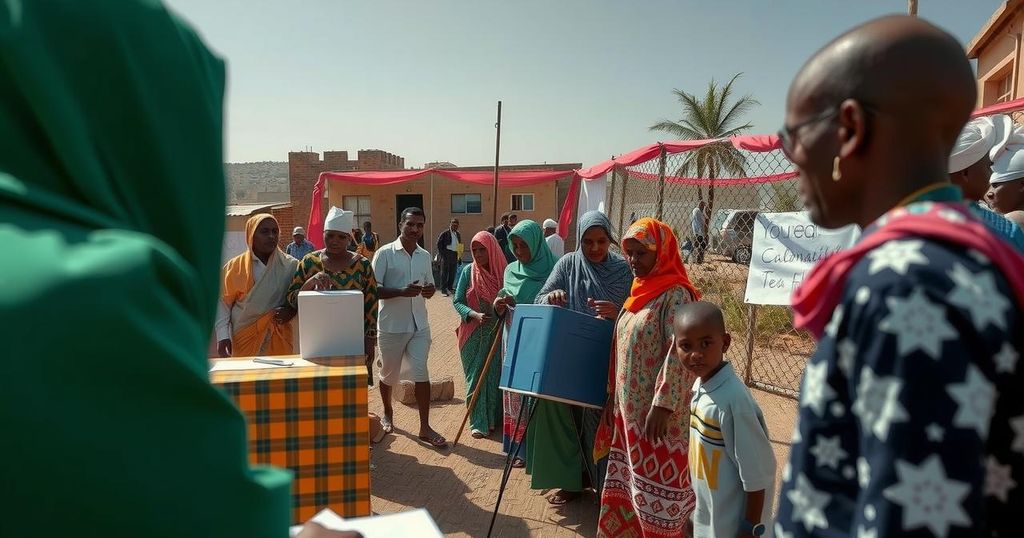Voting Commences in Somaliland’s Pivotal Presidential Election

Voting for the presidential election in Somaliland began on November 13, 2024, after a two-year delay. Over a million voters are expected at polling stations, with political candidates focusing on economic and democratic reforms. President Muse Bihi Abdi seeks re-election, facing challenges from Abdirahman Mohamed Abdullahi and Faisal Ali Warabe. The election highlights ongoing political tensions in the Horn of Africa and impacts from recent agreements with Ethiopia.
Voting has commenced in Somaliland, a self-declared independent region of Somalia, on November 13, 2024. This pivotal presidential election had been postponed for two years amidst regional political tensions. Over a million voters are anticipated to participate across more than 2,000 polling stations, with around 28 international observers monitoring the process. Local priorities include economic improvement and job creation as citizens express their political desires and aspirations. President Muse Bihi Abdi of the ruling Kulmiye Party is vying for a second term, having held office for the past seven years. His administration has been focused on gaining international recognition for Somaliland. His primary opponent, Abdirahman Mohamed Abdullahi of the Waddani Party, is campaigning for democratic reforms and enhanced social cohesion. Meanwhile, Faisal Ali Warabe from the Justice and Welfare Party is advocating for a national unity government. Since declaring independence from Somalia in 1991 during a period of significant conflict, Somaliland has established its own governance structures, currency, and security framework, setting it apart from Somalia’s ongoing instability. The local government had previously cited economic difficulties as a rationale for postponing the election in 2022. Tensions have also risen surrounding a recent accord with Ethiopia, which controversially allows Somaliland access to the Indian Ocean in return for diplomatic recognition, leading to accusations of Ethiopian interference in Somalia’s territorial matters. This election marks the fourth for Somaliland, highlighting concerns regarding the consistency and stability of its electoral process.
Somaliland, which declared independence from Somalia in 1991 amidst a chaotic civil war, has since cultivated a separate identity with effective governance and stability. Despite lacking international recognition, it has developed its own institutional frameworks and a stable political environment that sharply contrasts with the ongoing turmoil in Somalia. The region’s pursuit of recognition and its recent pact with Ethiopia underscores the complex geopolitical dynamics at play in the Horn of Africa, significantly influencing local electoral politics. The urgency for economic advancement and job creation has become a central theme among the electorate as they navigate their choices in this electoral cycle.
The presidential election in Somaliland represents a significant moment in the region’s political evolution, as citizens express their will for economic development and improved governance. With President Muse Bihi Abdi seeking re-election against formidable opposition, the election could solidify or challenge the political status quo in Somaliland. Furthermore, the implications of the recent agreement with Ethiopia and its relationship with Somalia remain critical elements that may shape future political discussions and electoral outcomes.
Original Source: apnews.com







